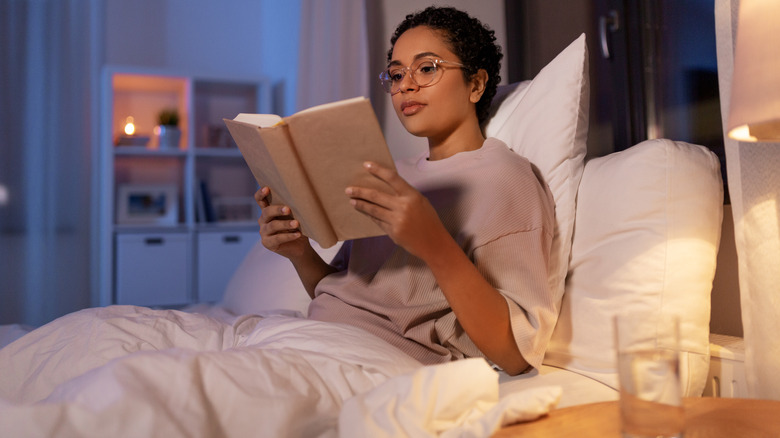Every function of your body runs on its circadian rhythm — which refers to the physical and mental changes that your mind and body go through over a 24 hour cycle, per National Institute of General Medical Sciences. For example, you might have a sense if you are a “morning” or “night” person, and part of the reason you are that way is your circadian rhythm (via MindBodyGreen).
Your circadian rhythm is closely related to your chronotype, which refers to your body’s tendency to get sleepy at a certain time. Genetics, age, gender, and other factors can affect your chronotype. Morning larks and night owls represent the two extremes of chronotypes, but the Sleep Foundation explains that many people fall somewhere in between these two, adding that chronotypes can change over time. For example, most children have an early chronotype, but this gets pushed back when we become teenagers. After the age of 20, however, the average chronotype begins to gradually shift earlier the older we become.
If you’ve tried to improve your sleep with limited results, maybe it’s time to work with your chronotype.
How to help your body prepare for sleep

It’s good to be aware of your chronotype because that can help you get a better night’s sleep. If you need to modify your sleep schedule, light (or lack thereof) can be a powerful tool to motivate your body to get sleepy at a certain time. For example, if you’re a night owl, but need to get up early for work, exposing yourself to light early in the morning may help you feel more energetic. In addition, you can help your brain become more relaxed and ready for sleep by avoiding bright light and computer screens in the evening (via MindBodyGreen).
You should also try to stick to a regular sleeping routine that allows you to get enough sleep. Dr. Sofia Axelrod tells MindBodyGreen that a consistent sleep schedule ensures that you’re sleeping long enough to wake up energized. If you find your mind racing once you lay your head on the pillow, you should reduce stress before bed. This may look like reading a book, journaling, taking a relaxing bath, or doing some relaxing stretches.